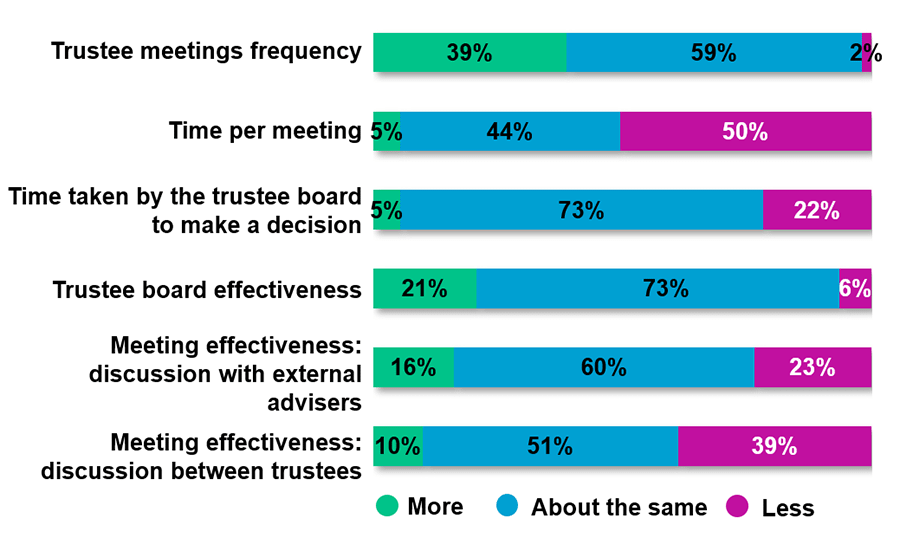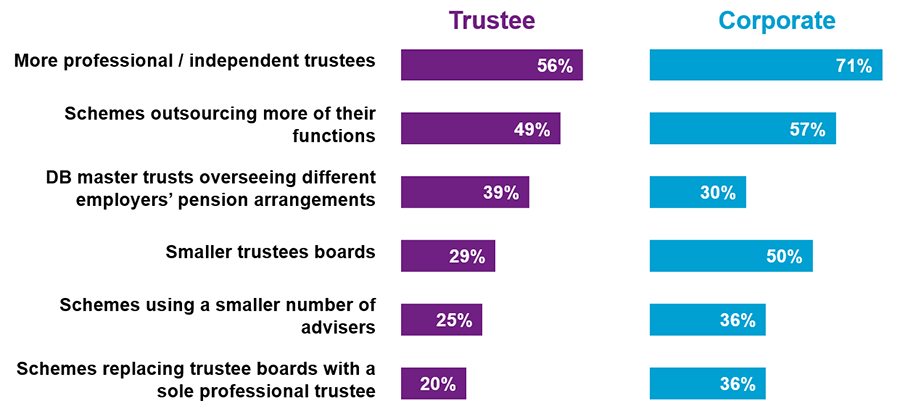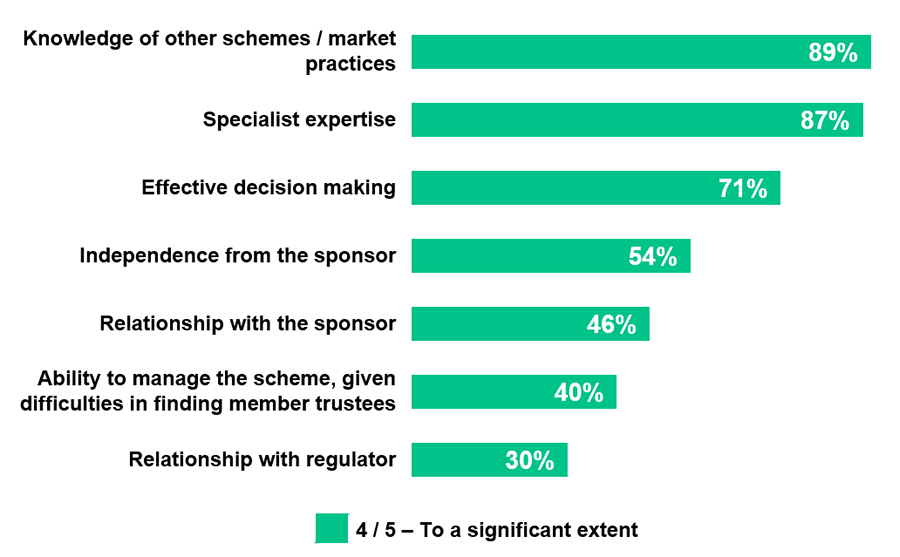Chapter four of the 2020 Emerging Trends in DB Pensions Survey
During 2020 the move to remote working, precipitated by national lockdown, has fundamentally altered the way defined benefit (DB) pensions schemes have been run. Traditional face-to-face meetings have been replaced by shorter, more frequent online meetings (Figure 1).

Note: Percentages may not sum to 100% due to rounding. Sample: Trustee focussed respondents.
How has remote working affected Trustees’ effectiveness? In Figure 8, we can see that they are most likely to say things have not significantly changed, for better or worse. Trustees are more likely to say that, overall, the trustee board has become more effective than that it has become less effective. More also think decision making is now faster than say it has become bogged down.
However, many trustees report that discussion between the trustee group is less effective (39%); likewise, discussion with advisers (23%).
If the move to more online meetings becomes permanent, then Trustee groups may need to adjust their approaches to, once again, facilitate more discussion and debate.
In Figure 2, we report the expected major trends in governance of DB schemes expected over the next three years. An increase in the role of professional trustees and greater outsourcing of functions/services are the foremost expectations of survey participants.

Percentage likely, very likely, extremely likely
56% of trustee and 71% of corporate respondents expect a growth in independent professional trustees, while over half of both corporate and trustee participants expect an increase in schemes outsourcing.
In terms of key new developments in governance: over a third of respondents expect DB master trusts to grow materially in the next three years (39% of trustee and 30% of corporate responses).
However, we do see some differences, between corporate and trustee responses, with regards the potential for future governance arrangements to shrink the trustee board:
The last decade has seen a large growth in the role of independent professional trustees. In Figure 3 we examine what contribution pension professionals think this has made to improving scheme governance.

Sample: All respondents (excluding professional trustees), whose trustee board contains an independent professional trustee.
Some 76% of trustees report independent professional trustees have significantly enhanced the governance of their scheme overall, with the chief advantages seen to be their knowledge of market practice (89%) and specialist expertise (87%).
7 in 10 trustees feel that professional trustees have contributed to more effective decision making (71%) and more than half think they have provided greater independence from the sponsor (54%).
By contrast, only a minority feel that professional trustees have helped schemes improve their relationship with the sponsor or the Regulator.
| Title | File Type | File Size |
|---|---|---|
| Emerging Trends in DB Pensions Survey 2020 | 4.1 MB |